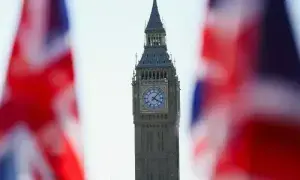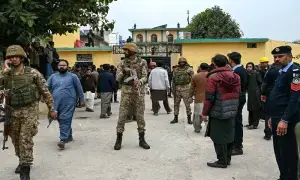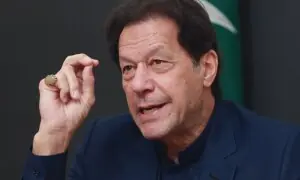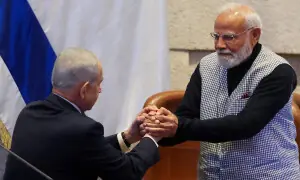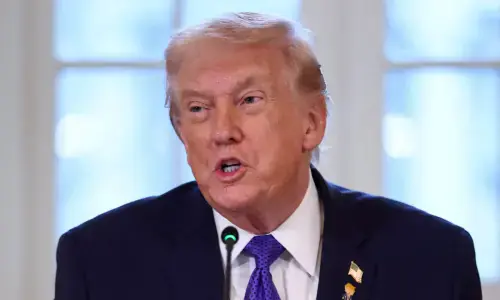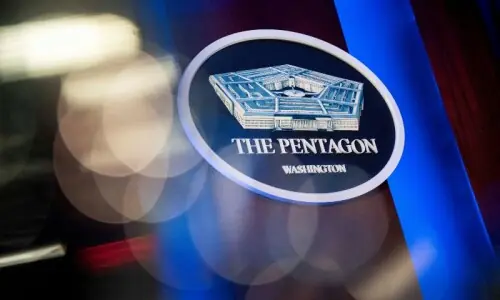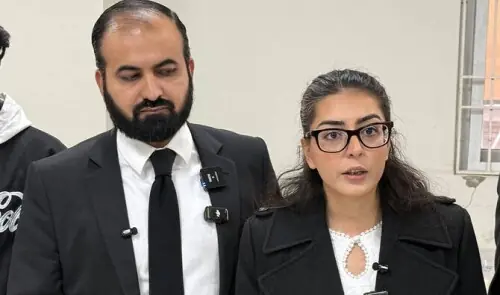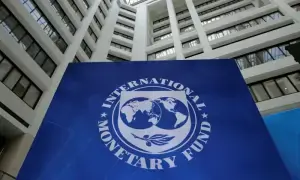WHILE the stand-off on the nomination of the country’s new spymaster finally came to an end this week, the reality of the impasse, its origins and the dramatic delay are not going to be easily forgotten. Though there is a resolution and the prime minister has issued a notification for the new chief, the three weeks of frenzied speculation, uncertainty and high political drama will certainly have lasting implications for the contours of civil-military relations, as well as the fragile notion of civilian supremacy.
The crisis, which saw the prime minister publicly challenge the army’s notification of a spy chief, is one rarely seen even in Pakistan’s chequered political history — and something that could have been easily avoided.
For much of October, the spy chief notification was the sole fixation of both Islamabad and Rawalpindi. Nearly everything else remained on hold as the battle of nerves persisted between the Prime Minister’s Office and that of the army chief. On paper, it is clear that the premier was right when he argued that it was his prerogative to choose the ISI chief.
While different circumstances may have allowed the framing of this as a matter of civilian supremacy, in this case it can hardly be described as such. This is because of the widely known fact that since the PTI came to power, the entire civilian set-up operating in Islamabad has remained dependent on the security establishment’s direct and indirect support. The military, too, showed undue haste in making the announcement, perhaps thinking that the regime that has been so obliging will never object.
Read: Stand-off on ISI chief's appointment has exposed growing gap between civil-military leadership
In the end, though it appears that both sides have agreed, it is evident that both did create a big mess. Has this episode created a permanent breach in the relationship? Time alone will tell. Although the announcement has been made, and the army chief’s choice for the new spy chief has been approved by the prime minister, there are still questions.
Why does the transfer take effect after one whole month? And what will become of the military’s command structure and all the transfers and postings that are linked with this one decision, including those of the Karachi and Peshawar corps commanders? No explanation has been given by the PM’s Office to explain a delay that makes absolutely no sense.
The episode is very revealing, however, about the ISI’s controversial seat at the table of civilian affairs. Perhaps it’s high time, and an opportunity for the incoming chief, to order the institution to take a step back, and reduce — if possible to completely eliminate — its role in domestic political affairs. For decades, their manipulations have stood in the way of strengthening the democratic institutions in the country. We can only hope that some lessons have been learnt from their role in pitting one political group against the other, and in the making and breaking of various governments.
Published in Dawn, October 28th, 2021




